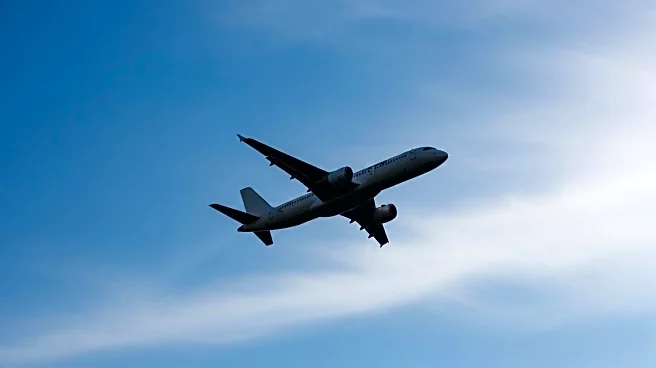What is the story about?
What's Happening?
Wizz Air, a European ultra-low-cost carrier, has announced the closure of its Vienna base following a strategic review of its operations and fleet allocation. The base, which opened in 2018, currently operates five Airbus A321neos serving 28 routes to 20 countries. The decision comes amid rising airport fees, taxes, and ground handling costs in Vienna, which have made continued operations unsustainable for the airline's business model. The closure will occur in two phases, with two aircraft leaving on October 26, 2025, and the remaining three departing by March 15, 2026. Wizz Air plans to transfer some aircraft to Bratislava, where it has secured a contract to serve domestic routes.
Why It's Important?
The closure of Wizz Air's Vienna base highlights the challenges faced by ultra-low-cost carriers in maintaining operations amid rising costs. This decision impacts the airline's strategic focus, shifting resources to more cost-effective locations in Central and Eastern Europe. The move may affect local employment and travel options in Vienna, while potentially benefiting operations in Bratislava and other bases. The decision underscores the competitive pressures in the airline industry, where cost management is crucial for sustainability.
What's Next?
Wizz Air plans to support its Vienna-based employees during the transition, with potential relocations to other locations. The airline will continue to expand its network from bases in Bratislava and Budapest, focusing on core markets in Central and Eastern Europe. Vienna Airport has announced a reduction in fees effective January 1, 2026, in an effort to remain competitive. The strategic shift may lead to further adjustments in Wizz Air's operations and fleet allocation.
Beyond the Headlines
The closure of the Vienna base reflects broader trends in the airline industry, where carriers must adapt to fluctuating costs and competitive pressures. Wizz Air's decision may influence other airlines facing similar challenges, prompting a reevaluation of operational strategies. The move also highlights the impact of regional economic policies on airline operations, as neighboring countries offer more favorable conditions.















